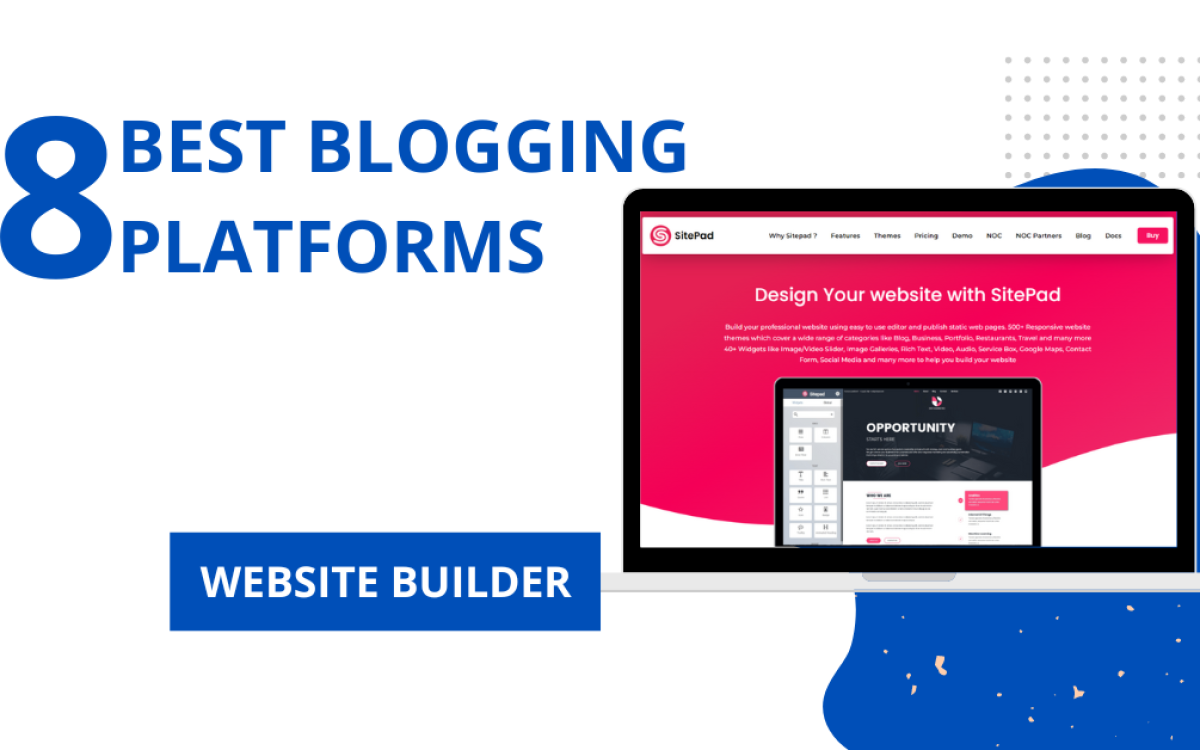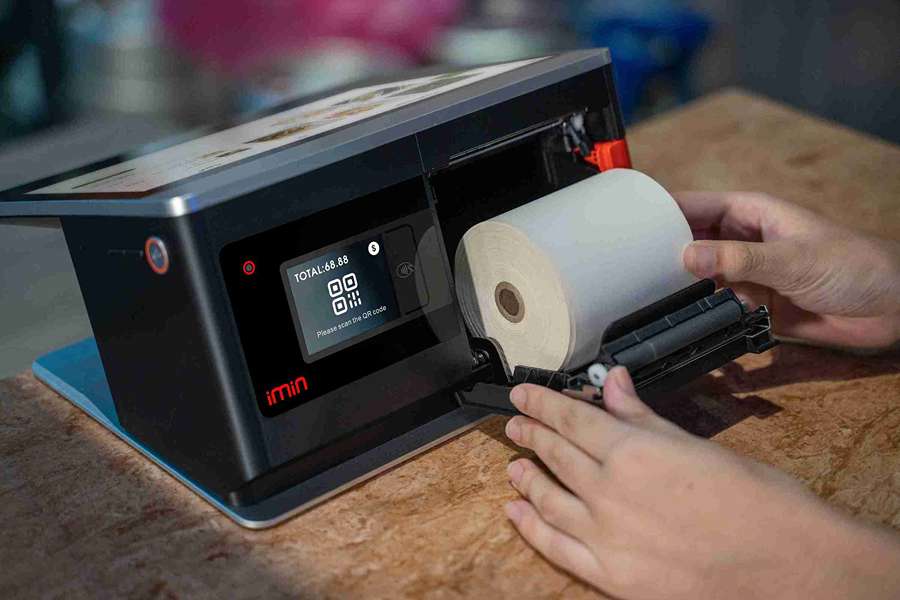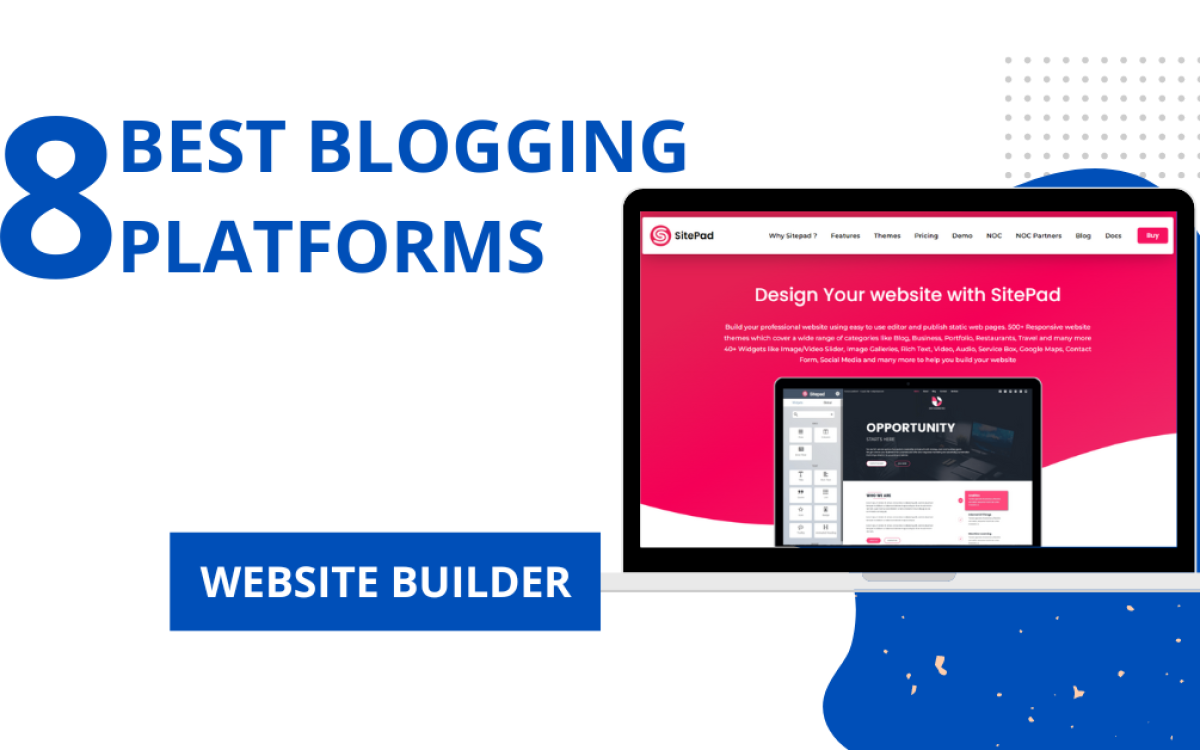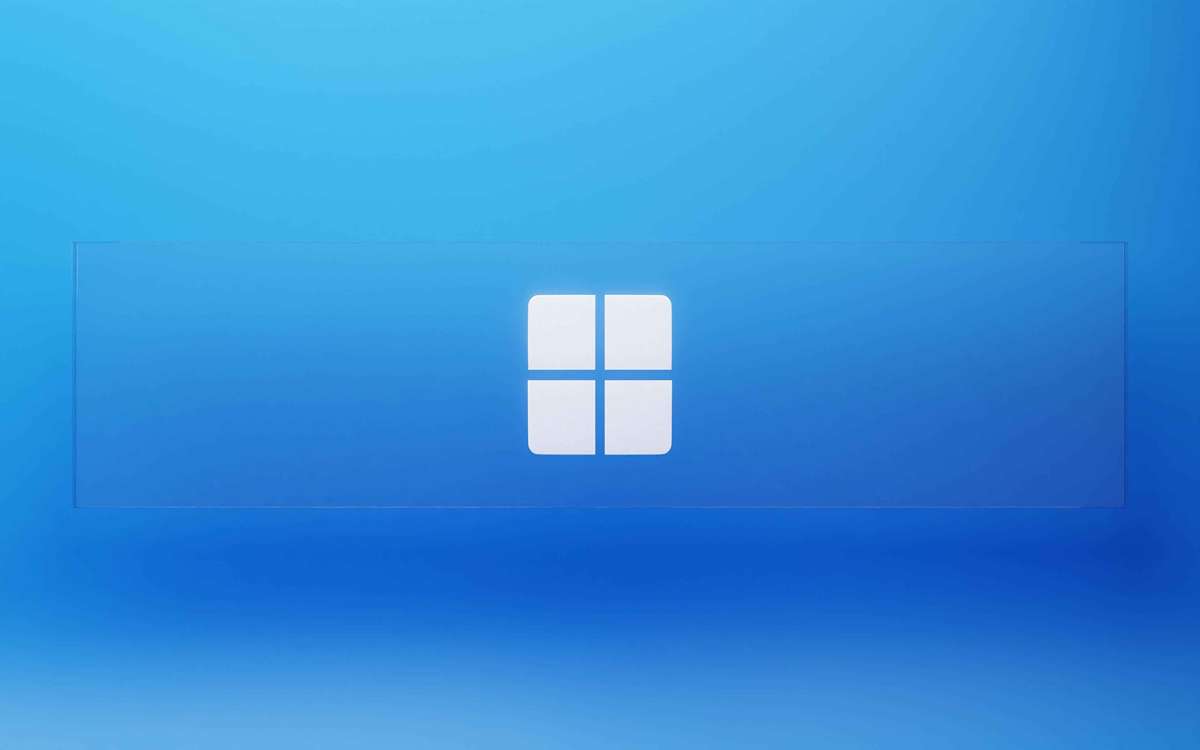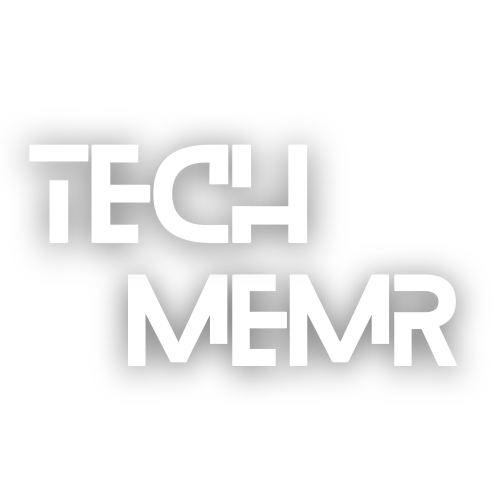Individuals, company owners, and small companies can quickly launch a website using blogging platforms or website builders without hiring a developer. For beginners, picking the best website builder or blogging platform might be challenging.
How do you determine which website builder is best for you when so many are available? Depending on your unique requirements, the honest answer to the question about the best website builder will change.
This article discusses the best blogging platforms that are easy to use and less complex to build websites.
WordPress
WordPress is a popular content management system (CMS) used for creating a blogging platform and managing websites. It was initially released in 2003 and has since grown to become one of the most widely used platforms for building sites, with over 40% of all websites or blogging platforms on the internet using WordPress. The best blogging platforms offer a range of customization options to help bloggers create a unique and professional-looking site.
The platform offers a user-friendly interface and a wide range of themes and plugins. It is also flexible enough to accommodate the needs of various types of websites, from personal blogs to e-commerce websites. WordPress is an open-source website builder, which means it is free to use and can be customized to fit individual needs. Its popularity and ease of use have made it a top choice for website developers and owners.

As we know, WordPress is an Open Source project, which means there are hundreds of people all over the world working on it. (More than most commercial platforms.) It also means you can use it for anything from your recipe site to a Fortune 500 website without paying anyone a license fee.
Serendipity
Serendipity is a free, open-source website builder designed to create and manage blogs. It was first released in 2003 and has since grown to become a popular choice for bloggers looking for a lightweight and easy-to-use platform. Serendipity offers a range of features, including a customizable template system, support for multiple authors, and a built-in comment system. The platform is written in PHP and uses a MySQL database to store content.

Its user-friendly interface and flexibility make it a popular choice for bloggers looking for a CMS that is easy to set up and use without sacrificing functionality. Serendipity is also highly extensible, with a range of plugins available to add additional features and functionality to the platform.
Serendipity is free, open, and available to anyone under the BSD 3-Clause License.
You may Like Platforms where You can buy and Sell Websites or Online Businesses.
Dotclear
Dotclear is a free and open-source blogging platform and content management system (CMS) that allowing users to create and manage their blogs easily. It was first released in 2003 and has undergone numerous updates and improvements.
One of the advantages of Dotclear is its user-friendly interface, which makes it easy for bloggers of all levels of experience to create and manage their blogs. It also offers a range of customization options, including the ability to use various templates and plugins to tailor the appearance and functionality of the blog to suit individual needs.

Dotclear’s user interface is intuitive and easy to use, making it an ideal choice for starting bloggers. It also supports a wide range of languages, including French, English, and Spanish. Additionally, Dotclear is highly extensible, with a range of plugins available to add additional features and functionality to the platform.
Dotclear is free software, and it is freely distributed under the GNU General Public License version 2.
b2evolution
b2evolution is a free and open-source content management system (CMS) designed for creating and managing blogs and websites. It was first released in 2003 and has since gained popularity as a versatile and powerful platform. b2evolution is written in PHP and uses a MySQL database to store content. b2evaluation is a free website builder that offers a range of features, including a customizable template system, support for multiple blogs, and a built-in comment system.

b2evolution’s user interface is modern and intuitive, making it easy for bloggers and website owners to create and manage content. It also supports multiple languages and allows easy customization with various plugins and themes. In addition, b2evolution offers advanced features such as content categorization, social media integration, and search engine optimization (SEO) tools, making it a suitable platform for personal and business websites.
b2evolution is free, open, and available to anyone under the GNU/GPL license.
Textpattern
Textpattern is a free and open-source content management system (CMS) designed for creating and managing websites, mainly for publishing online content. It was first released in 2003 and has become one of the best flexible and customizable blogging platforms. Textpattern is written in PHP and uses a MySQL database to store content. The platform offers a range of features, including a customizable template system, support for multiple authors, and a built-in comment system.

Textpattern’s user interface is clean and easy to navigate, making it an ideal choice for bloggers and website owners who prioritize simplicity and ease of use. It offers advanced features like content syndication, custom fields, and search engine optimization (SEO) tools. In addition, Textpattern has a thriving community of users who contribute to its development, with a range of plugins and themes available for easy customization.
Textpattern is released under the GNU/GPL license.
SitePad
SitePad is another of the best blogging platforms, offering a user-friendly interface, stunning templates, and built-in SEO tools. It is a drag-and-drop website builder that allows users to create a professional-looking website or blogging platform without any coding or design experience. Hence, it may be a good choice for bloggers or website builders with less experience or avoiding coding. It was developed by the same team that created Softaculous, a popular one-click installation software for web applications. SitePad offers a range of templates and themes and a variety of widgets and elements that can be easily added to the website with the drag-and-drop interface.

The platform also includes responsive design, SEO tools, and e-commerce integration features. SitePad is compatible with many hosting providers, making it an ideal choice for website owners. It is available as a standalone website builder or as an add-on to popular control panels such as cPanel and Plesk. SitePad’s intuitive interface and powerful features make it an excellent choice for beginners and experienced users.
HTML
HTMLy is a free, open-source, flat-file content management system (CMS) designed to create and manage blogs and websites. Unlike traditional CMSs that rely on a database, HTMLy stores all content in flat files, making it lightweight and fast. HTMLy was first released in 2014 and has since gained popularity as a simple and easy-to-use blogging platform. It is one of the best blogging platforms for those who want to create a fast-loading website.

The platform is written in PHP and uses Markdown as its markup language. HTMLy offers a range of features, including a customizable template system, support for multiple authors, and a built-in comment system. The user interface is minimalistic and clean, emphasizing simplicity and ease of use. HTMLy is also highly customizable, with a range of plugins available to add additional features and functionality to the platform. Also, Its lightweight design and flat-file storage make it an ideal choice for bloggers and website owners who prioritize speed and simplicity.
HTMLy is licensed under the GNU General Public License Version 2.0.
FlatPress
FlatPress is a free, open-source flat-file content management system (CMS) designed to create and manage blogs and websites. It was first released in 2007 and has since gained popularity as a lightweight and easy-to-use platform. Unlike traditional CMSs that rely on a database to store content, this blogging platform stores all content in flat files, making it light and fast. The platform is written in PHP and uses Markdown as its markup language. FlatPress offers a range of features, including a customizable template system, support for multiple authors, and a built-in comment system.

The user interface is simple and user-friendly, focusing on ease of use. FlatPress is also highly customizable, with a range of plugins available to add additional features and functionality to the platform. Moreover, Its lightweight design and flat-file storage make it an ideal choice for bloggers and website owners who prioritize speed and simplicity.
It is a blogging engine that saves your posts as simple text files. Forget about SQL! You need some PHP.
FlatPress is released under the GNU GPLv2 License.
Features
- Standard-compliant (XHTML valid)
- No need to fiddle with SQL
- Easy to back up! Just copy one directory
- Easy plugin system
- Widget support
- Easy to customize with themes (powered by Smarty)

